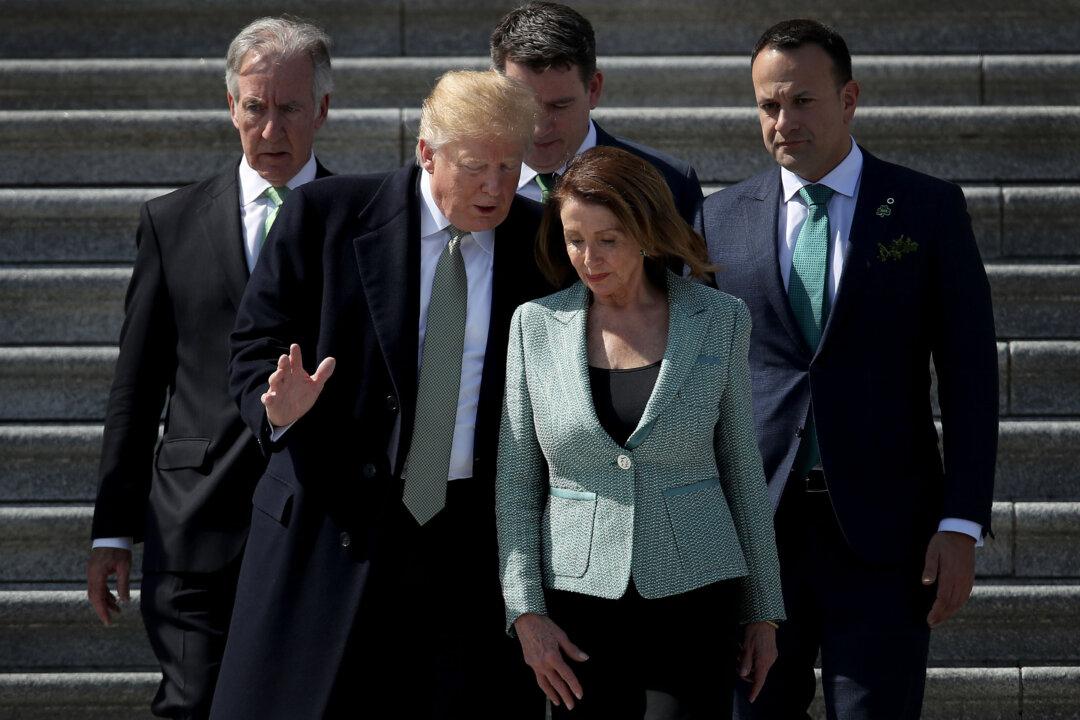President Donald Trump announced on July 22 that the White House has reached a deal with Democratic and Republican leaders on a two-year budget, amounting to an against-the-odds victory for Washington pragmatists seeking to avoid politically dangerous tumult over fiscal deadlines.
“I am pleased to announce that a deal has been struck with Senate Majority Leader Mitch McConnell, Senate Minority Leader Chuck Schumer, Speaker of the House Nancy Pelosi, and House Minority Leader Kevin McCarthy - on a two-year Budget and Debt Ceiling, with no poison pills,” Trump wrote on Twitter. “This was a real compromise in order to give another big victory to our Great Military and Vets!”





